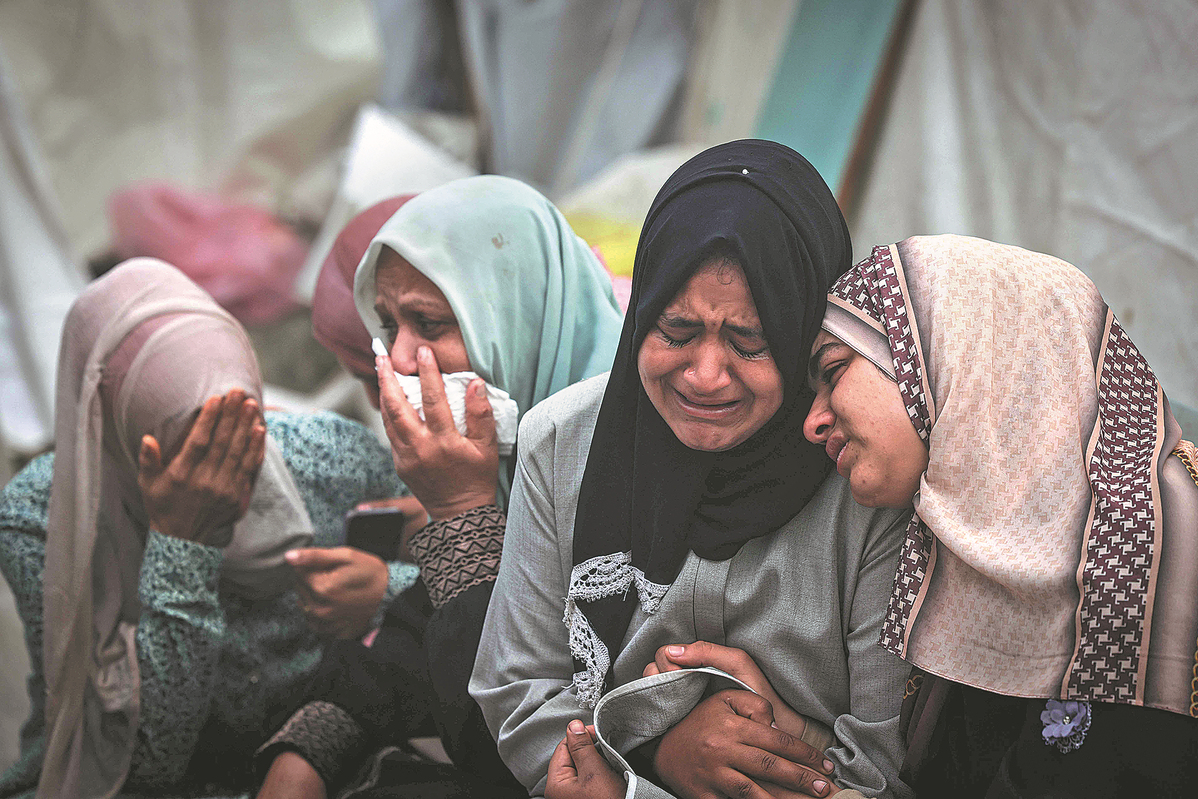Pleas for peace in Gaza grow louder


Crucial medical care
Lujain Alqodmani, president of the World Medical Association, said that the group "stands in solidarity with all the physicians and healthcare personnel who are on the front line", risking their lives to provide crucial medical care "during these challenging times", and called for international humanitarian laws to be respected.
"We remain committed to our mission of advocating for the ethical practice of medicine and promoting peace and respect for humanitarian principles. We urgently call for safe provision of medical and health equipment and humanitarian supplies for all people in Gaza," Alqodmani said.
"Civilians, healthcare facilities, personnel and vehicles are never a target. All people in Gaza have the right to safely access healthcare as all people everywhere even during war. This is their fundamental human right that should always be protected and never compromised."
Meanwhile, with the UN Office for the Coordination of Humanitarian Affairs reporting that telecommunications and internet services had been cut off in Gaza, the International Telecommunication Union has called for the protection of telecommunications infrastructure and "the essential right to communicate".
"Digital connectivity is essential to social and economic development. Connectivity is also critical for people to make distress calls and reach emergency health services. ITU has called for the protection of telecommunications infrastructure and the essential right to communicate," it said.
Both Israel and Hamas have been accused of committing war crimes in the latest conflict. According to the Rome Statute of the International Criminal Court, the definition of a war crime includes wilful killing, torture, inhuman treatment, extensive destruction and appropriation of property not justified by military necessity and carried out unlawfully and wantonly, and taking of hostages.
Abdalfatah Asqool, an international law lecturer at the University of Palestine in the Gaza Strip, said that under international humanitarian law, there "are many principles to govern any conflict" that may break out between any parties.
One tenet under the law is the proportionality principle, which means there must be (proportionality) between civilian damage and the military benefits from any attacks or military operations, Asqool said.
Israelis and Palestinians have been locked in a territory dispute for decades, and their conflict continues to be one of the most contentious issues in the Middle East.
Jasim Husain, a Gulf analyst and former member of Bahrain's Parliament, said that not much attention was being put into finding a comprehensive political solution to the crisis.
"Any solution must be based on the two-states notion," Husain said.
The 22-member Arab League, which also includes six countries that make up the Gulf Cooperation Council, has repeatedly condemned the Gaza assault but its member states differ in response when dealing with Israel.
"Leading Arab and Gulf countries are focusing on a permanent cease-fire, ensuring steady entry of aid to Gaza due to the humanitarian situation and needs," Husain said. He added that the Arab and Gulf countries "have different priorities" and their own agendas with regard to socioeconomic and sociopolitical matters.
Hussein Maklad, a professor of international relations at Damascus University, said that the current situation also reflects how the US government is "in crisis".
The US has fought "against innocent people in Gaza" by providing Israel with weapons when the US Congress appropriated $14.3 billion in assistance to Israel.
In the wake of the Hamas attack on Oct 7, US President Joe Biden declared support for Israel, ramping up US military support by deploying the USS Gerald R. Ford aircraft carrier and another warship in the Mediterranean Sea.
The US recently announced the creation of "Operation Prosperity Guardian", a naval protection force in the Red Sea following attacks from Yemen's Houthi militia on merchant shipping.























